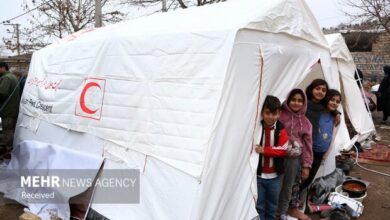Latin America and Caribbean can be at the forefront of global food and agriculture, provided it first tackles hunger and inequality
FAO Director-General points to priority areas for action to heads of state and government at regional CELAC forum

Buenos Aires – Latin America and the Caribbean “can and must step up” to address increasing hunger and inequality rates in the region, a role that would move them “to the forefront of global food and agriculture” – this was the message conveyed by the Director-General of the Food and Agriculture Organization of the United Nations (FAO), QU Dongyu
Qu’s speech to the 7th Summit of Heads of State and Government of the Community of Latin America and Caribbean States (CELAC), presided over this year by Argentina, was delivered by FAO Chief Economist Maximo Torero.
Qu pointed to key priority areas that integration through CELAC would facilitate, highlighting the need to expand food supply in the Caribbean, where healthy diets are expensive, investing in water infrastructure and food production initiatives in Central America, where droughts and outmigration are persistent trends, improving food exchange between countries in the Andean region, and fostering a large regional programme of infrastructure for production, storage and transportation of food to facilitate intra-regional trade and exports.
Latin America and the Caribbean was an outperforming region in terms of reducing hunger and poverty in the decade up to 2015. Yet, despite being the world’s largest net food exporting region, it has faced major setbacks lately. Between 2019 and 2021, the number of people suffering from hunger increased by 30 percent to 56.5 million, while those enduring poverty has also increased.
That could represent a setback of a decade or more in the effort to reduce poverty and hunger in the region and beyond, and stymie efforts to reduce inequalities as called for by Sustainable Development Goal 10, FAO’s Director-General said.
While the FAO Food Price Index has been declining, offering some respite, recovery has yet to be established and more challenges are inevitable as the world’s agrifood systems operate under risks and uncertainties, including those stemming from the climate crisis and economic slowdowns, he added.
Qu called for urgent collective action now to focus on the social and economic consequences of the pandemic, rising food insecurity, rising prices of staple foods, fertilizers and other agricultural inputs, the climate crisis, erosion of biodiversity, deforestation and water scarcity, and persistent poverty and rising inequalities that are especially impacting rural populations, women, youth and the most vulnerable.
The best way to do this, regionally and globally, is to transform agrifood systems to make them more efficient, more inclusive, more resilient and more sustainable, he said. “It is critical to achieve our common goal of the Four Betters: better production, better nutrition, a better environment and a better life for all,” he added
The best way to do this, regionally and globally, is to transform agrifood systems to make them more efficient, more inclusive, more resilient and more sustainable, he( the Director-General of FAO)said. “It is critical to achieve our common goal of the Four Betters: better production, better nutrition, a better environment and a better life for all,” he added.



